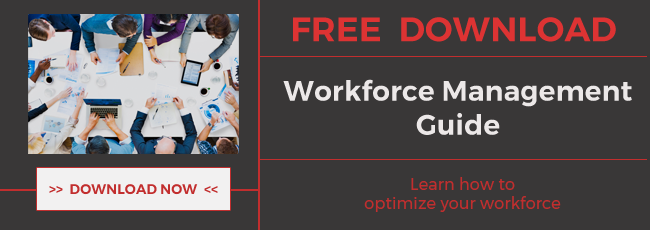Each year brings a new set of labor laws that directly affect employers in California. The burden of turning the requirements of these laws into relevant policy and ensuring compliance falls on employers and their HR staff.

There are a number of new laws related to sexual harassment prevention training and stronger protections for victims of sexual misconduct in the workplace. We reviewed these in previous posts. In addition to these laws and changes, a number of other labor and workplace-related laws have gone into effect this year.
Round Up of New California Labor Laws
Here are the highlights of new laws and changes that have become effective since January 1, 2019.
Industrial Welfare Commission's Wage Order 14-2001
Agricultural work is exempt from federal overtime rules under the Fair Labor Standards Act (FLSA). But in California the Industrial Welfare Commission's Wage Order 14-2001 provides new requirements under Labor Code section 860 and entitles agricultural employees to daily overtime pay.
- As of January 1, 2019, agricultural employers with 26 or more workers must pay overtime at 1.5 times the regular rate of pay for agricultural employees who work more than 9.5 hours per day or more than 55 hours per week.
- On January 1, 2022, agricultural employers with 26 or more workers must pay overtime at 1.5 times the regular rate for work of more than 8 hours per day or 40 hours per week, and 2 times the regular rate for work of more than 12 hours per day.
A more gradual phase-in process will be applied to employers with fewer than 26 employees beginning on January 1, 2022.
Soliciting Employees of Former Employer Prohibitions Not Enforceable
In 2018 a California appeals court voided an employer's contract that restrained former employees from soliciting current employees for a one-year period. The court's decision suggest that any longstanding anti-raiding provisions may be void under "California's strong public policy of protecting the right of its citizens to pursue any lawful employment and enterprise of their choice."
While the case did not change existing anti-raiding provisions, the court's decision has now made legal enforcement of such contracts questionable.
Testifying Prohibition (AB 3109)
This law addresses employer contracts and voids provisions that would prevent a party from testifying about alleged criminal conduct or sexual harassment when the party has been compelled or requested to do so by lawful process.
Beginning January 1, 2019, any contract or settlement agreement that attempts to bar a person from testifying in an administrative, legislative, or judicial proceeding about alleged criminal conduct or sexual harassment is void and unenforceable in California.
Required Confidentiality Prohibition (SB 1300)
This bill amends the Fair Employment and Housing Act (FEHA) by prohibiting employers from requiring workers to agree to nondisclosure clauses as a term or condition of employment or in exchange for a raise or bonus. The change makes it unlawful for businesses to require employees to release FEHA claims or to stay silent concerning “unlawful acts in the workplace,”
There are exceptions to this prohibition such an agreement as the result of a lawsuit resolution, or specific types of complaints under specific circumstances, in which case the employer can still get a release and require confidentiality.
Sexual Misconduct Nondisclosure Prohibition (SB 820)
This bill provides an addition to Code of Civil Procedure § 1001. As of January 1, 2019, it voids contractual provisions or agreements that would prevent a party from disclosing “factual information” related to a claim of sexual assault, sexual harassment, or gender discrimination filed in a civil or administrative action.
Exceptions to the law does provide for nondisclosure of
- the amount paid in settlement and
- the claimant's identity and any fact that could reveal the identity, so long as the claimant has requested anonymity and the opposing party is not a government agency or public official.
Labor Law Compliance Best Practices for California Employers
Outsourcing HR functions is an increasingly common strategy for small businesses and the advantages are worth asking about. In addition to reducing your in-house costs, increasing accuracy and security, you can also benefit by freeing your HR resources for improving operational functions, recruiting efforts, and training.
Reliability, full-service options, and reputation are the hallmarks of a quality HR management service provider. If you are currently looking to invest in outsourcing you get your Free Download: California Labor Law guide to help you make an informed decision or call Accuchex Payroll Management Services at 877-422-2824.





